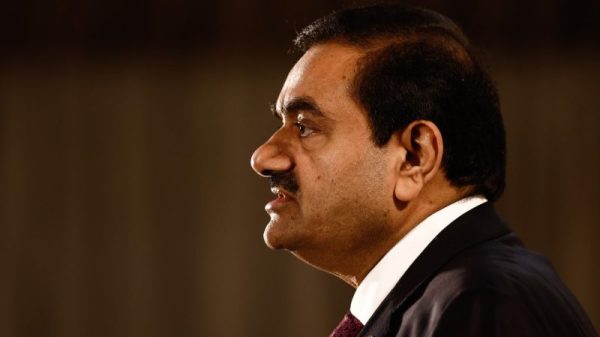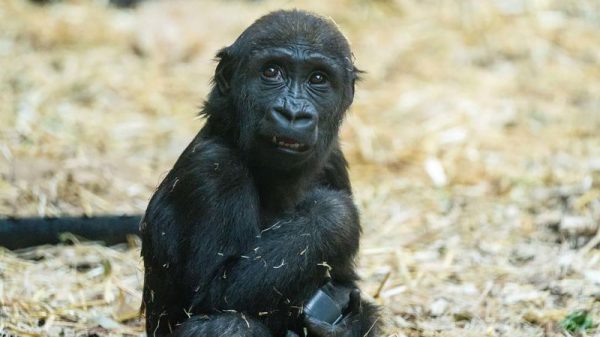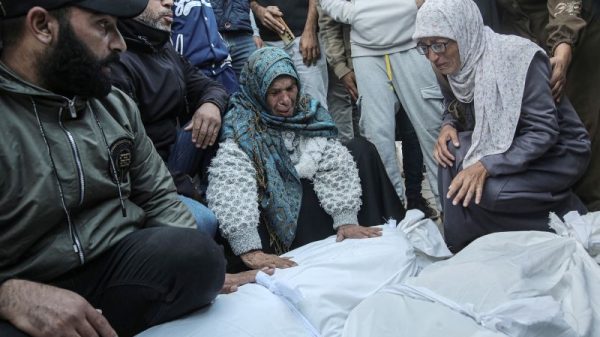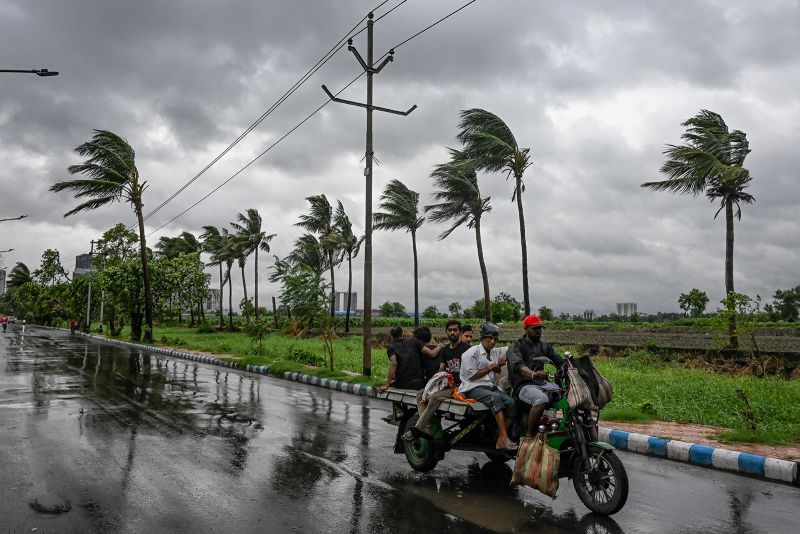At least seven people, including a child, have died in southern India as Tropical Cyclone Remal lashed the area with torrential rain and heavy winds.
More than 1 million people in India and Bangladesh were evacuated Sunday as the cyclone made landfall near the border of between the two countries. The cyclone has continued to move inland across eastern India, toppling trees, turning roads into rivers and causing wide-scale damage.
The Indian Metereological Department said it expected the cyclone to “gradually weaken” on Monday.
Authorities said that volunteers and army staff were mobilized to assist with clean-up efforts, and distribute food and water to displaced families.
Remal made landfall roughly 80 kilometers (50 miles) southeast of the Indian city of Kolkata, packing gusts of up to 135 kilometers per hour (84 miles per hour), and is moving northwards across Bangladesh and its adjoining West Bengal coasts, the Indian Meteorological Department said.
The maritime ports of Mongla and Payra in Bangladesh put up the Great Danger Signal 10 — the highest alert signal — on Sunday, and all fishing and boating vessels were advised to remain in shelter by the Bangladesh Meteorological Department.
About 2 million people live in storm-affected areas in Bangladesh, according to non-profit BRAC.
At least half a million of these people “live in houses made of materials such as clay, wood, plastic sheets, straw or tin,” said Dr. Md Liakath Ali, a disaster expert at BRAC.
The country is one of the world’s most vulnerable to the impacts of the climate crisis, studies show.
Millions are without power as authorities shut down electricity supply to many areas in advance to avoid accidents, according to Ali. Fallen trees and broken lines disrupted supply, he said.
An especially vulnerable group are the stateless Rohingya communities who fled persecution in nearby Myanmar during a military crackdown in 2017. They are already living in the world’s largest refugee camps in Cox’s Bazar, which is at risk of landslides and floods, owing to the flimsy structure of their shelters. Many live in bamboo and tarpaulin shelters perched on hilly slopes that are vulnerable to strong winds, rain, and landslides.
Video taken by a BRAC’s volunteer early Monday in Mongla showed a woman struggling to walk through the floodwaters as gusts of wind nearly toppled her over.
In India, video from the country’s National Disaster Response Force showed workers removing broken trees in the state of West Bengal as heavy rain lashed down on them. The Coast Guard was seen closely monitoring Remal’s landfall, with ships and hovercraft on standby to respond to any challenges, it said.
Hundreds of flights were also impacted following the closure on Sunday of the main international airport in the Indian city of Kolkata, West Bengal state’s capital. Air traffic in and out of the airport resumed on Monday, but disruptions continued with dozens of flights delayed, according to the airport’s official website.
Tropical Cyclone Remal has been churning across the Bay of Bengal since late last week prompting authorities to prepare ahead of its arrival.
Indian Prime Minister Narendra Modi on Sunday said he had reviewed disaster management and preparation efforts. “I pray for everyone’s safety and wellbeing,” Modi wrote on X.
Cyclones, also known as typhoons and called hurricanes in North America, are enormous heat engines of wind and rain that feed on warm ocean water and moist air. And scientists say the climate crisis is making them more potent.
A study published in 2021 by researchers at the Shenzhen Institute of Meteorological Innovation and the Chinese University of Hong Kong and published in Frontiers in Earth Science found that tropical cyclones in Asia could have double the destructive power by the end of the century, with scientists saying the human-made climate crisis is already making them stronger.
The cyclone comes as parts of Western and Central India continue to bake under severe heat, with temperatures soaring beyond 45 degrees Celsius (113 Fahrenheit) in some cities, causing illness and forcing some schools to close.
Climate scientists have long warned that these extremes of weather will only continue to intensify because of the climate crisis, with millions of people in India vulnerable to the risks associated with it.






























